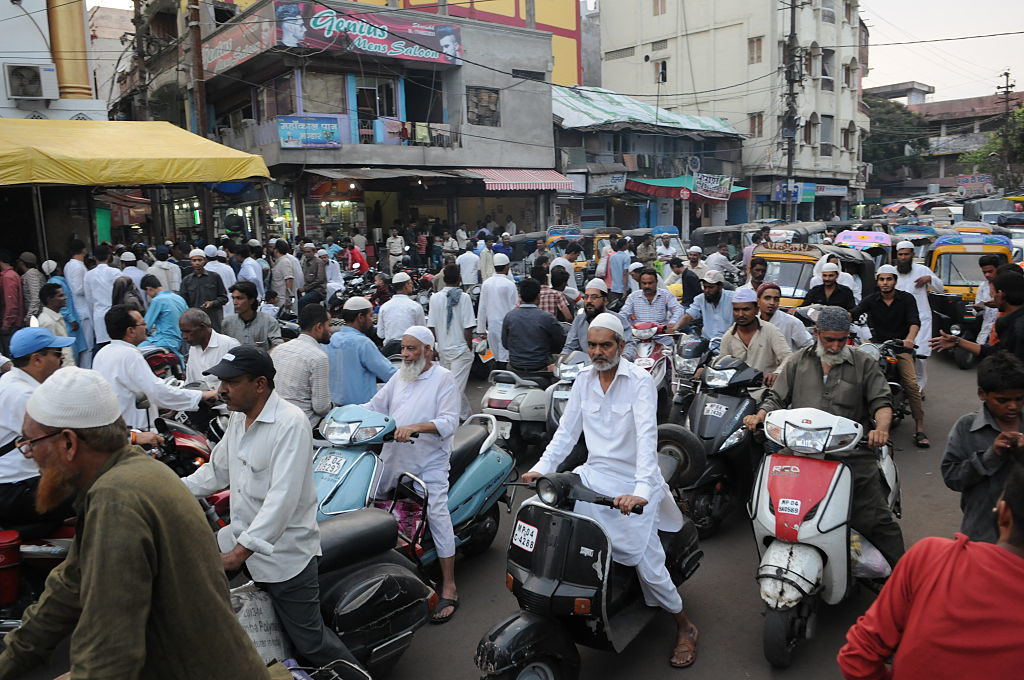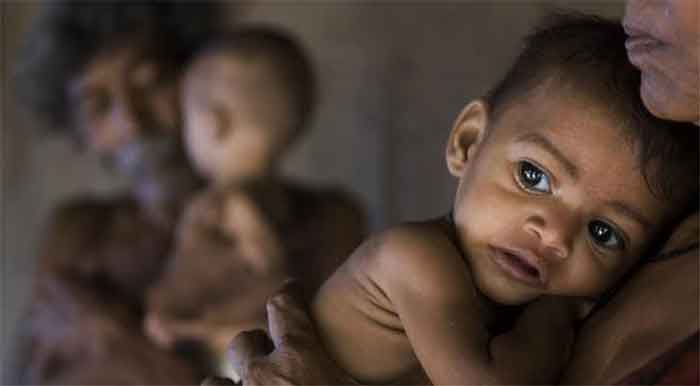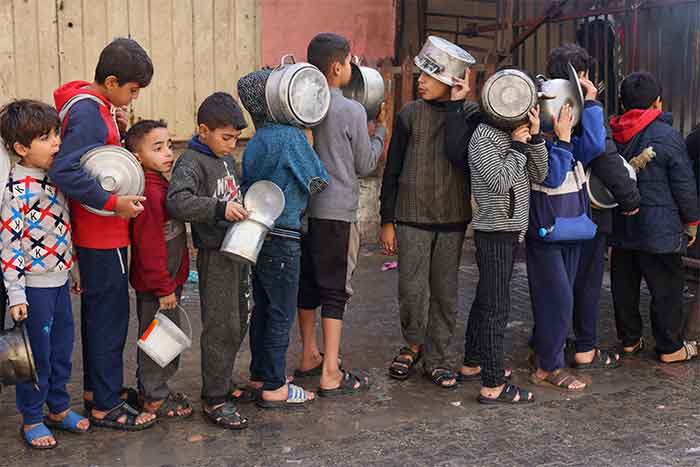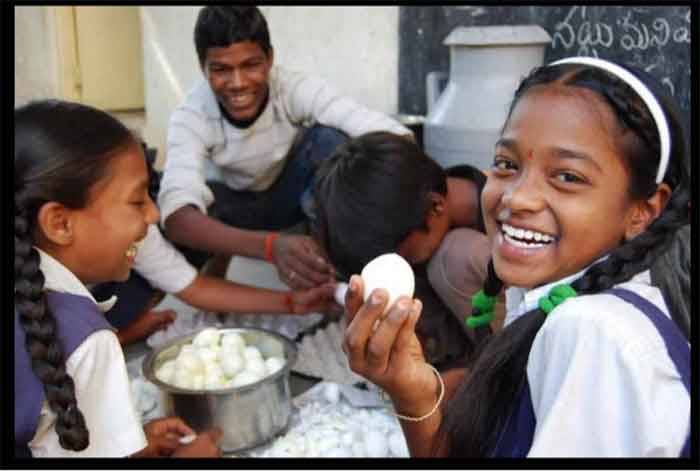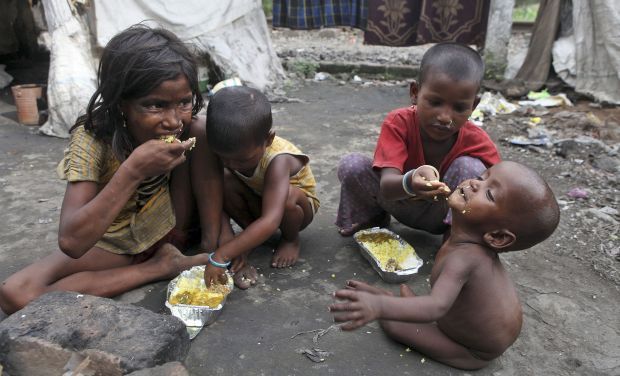
The world’s progress in eliminating poverty is set to suffer a major setback due to the coronavirus pandemic, forcing more people to survive on less than $1.90 per day, the World Bank has said in a recent statement (Press release no.: 2020/193/EXC).
“The pandemic and shutdown of advanced economies could push as many as 60 million people into extreme poverty – erasing much of the recent progress made in poverty alleviation,” warns World Bank Group President David Malpass Tuesday.
According to him, the unprecedented crisis could wipe out up to three years of progress in the area.
The pandemic has been ripping through the global economy, which is set to fall into a deep recession and contract by up to five percent this year, the Washington-based institution said.
Last month, the bank said that the virus-triggered economic turmoil is likely to cause the first increase in global poverty since 1998, when the Asian Financial Crisis hit. Even under the bank’s best estimate, some 49 million people will fall into extreme poverty, which it defines as living on less than $1.90 per person per day.
To help combat the deadly virus, the World Bank has offered financing emergency programs in 100 countries. In the “largest” crisis response in the Bank Group’s history, the program unlocked $160 billion in grants and financial support over a 15-month period, as well as the suspension of bilateral debt service payments. The bulk of the financial help will go to Sub-Saharan Africa, as it is expected be the region hit hardest in terms of increased extreme poverty.
The UN had earlier warned that the virus could also trigger a global food shortage, while its labor agency forecasts that 195 million jobs could be lost worldwide.
Malpass said the bank expects global economic growth to shrink by 5% this year as nations deal with the pandemic.
This has already led to millions losing their jobs and businesses failing, with poorer countries feeling the brunt.
“Millions of livelihoods have been destroyed and healthcare systems are under strain worldwide,” he said.
Malpass said he was also frustrated with commercial lenders dragging their heels on offering debt relief to poor nations. “I have been somewhat frustrated by the slow pace. Commercial creditors are still, by and large, taking payments from even the poorest countries and there needs to be faster movement.”
The World Bank worked with the International Monetary Fund (IMF) on a scheme to allow poorer countries to request debt relief on repayments of loans owed to G20 members until the end of this year.
The World Bank warning suggests deepening pessimism among economists about the scale and duration of the fallout from what the bank described as an “unprecedented crisis.”
Drop in remittance
Migrant workers across the globe have been losing their jobs as the pandemic stops work in various industries. As a result, the World Bank estimates that global remittances, or money sent home to families, could drop by 20%, or about $100 billion, this year.
Sub-Saharan Africa
The World Bank said last month that it expected people in sub-Saharan Africa would suffer the most. Currently, 39 of the World Bank’s 100 target countries are there, and at least 23 million residents of the region are projected to be heading for extreme poverty because of the coronavirus outbreak.
South Asia
South Asia is also likely to suffer. In addition to Nigeria and the Democratic Republic of Congo, World Bank economists said last month that India, one of the world’s most populous countries, was estimated to see “the largest change in the number of poor,” with about 12 million affected.
“The places where the virus is taking its highest toll depends primarily on two factors,” analysts at the bank wrote in a blog post. “The impact of the virus on economic activity and the number of people living close to the international poverty line.”
Covid-19 crisis could leave $8.8 trillion hole in global economy, warns Asian Development Bank
The coronavirus, officially Covid-19, pandemic could chop nearly 10 percent off global gross domestic product (GDP), the Asian Development Bank (ADB) predicts, more than doubling its previous forecast.
The global economy could suffer between $5.8 trillion and $8.8 trillion in losses, the equivalent of between 6.4 percent and 9.7 percent of global GDP, said a recent ADB report said.
This is much worse than the Manila-based bank predicted in April, when it said that the Covid-19 global cost could range between $2 trillion and $4.1 trillion.
The blow to the global economy will depend on how long it will take to contain the pandemic, with the bank’s worst-case scenario implying that the measures will stay in place for a half a year. The damage will be less severe if curbs on movement and business last no longer than three months.
The bank said that measures to contain the spread of the infection could inflict $1.7 trillion to $2.5 trillion in economic losses in Asia, while China alone may lose up to $1.6 trillion.
UNDESA
A recent forecast by the UN Department of Economic and Social Affairs said the world economy is set to shrink by 3.2 percent this year, and the losses in output could reach $8.5 trillion in 2020 and 2021. The decline is set to nearly “wipe out” the cumulative output gains of the previous four years, according to the report.
Tens of millions of people in Africa may become destitute as a result of the crisis, human rights chiefs warned Wednesday.
“We cannot afford to stand idly by and hope this most viral and deadly of diseases bypasses Africa, which is home to many of the world’s poorest countries who are simply not in position to handle such a pandemic,” UN High Commissioner for Human Rights Michelle Bachelet and Chairperson of the African Commission on Human and Peoples’ Rights Solomon Dersso said in a joint statement.
JP Morgan
At the same time, Jamie Dimon, chief executive of JP Morgan bank, said that the coronavirus pandemic must serve as a “wake-up call” to build a fairer society.
“It is my fervent hope that we use this crisis as a catalyst to rebuild an economy that creates and sustains opportunity for dramatically more people, especially those who have been left behind for too long,” he wrote ahead of the bank’s annual shareholder meeting on Tuesday.
SIGN UP FOR COUNTERCURRENTS DAILY NEWS LETTER


